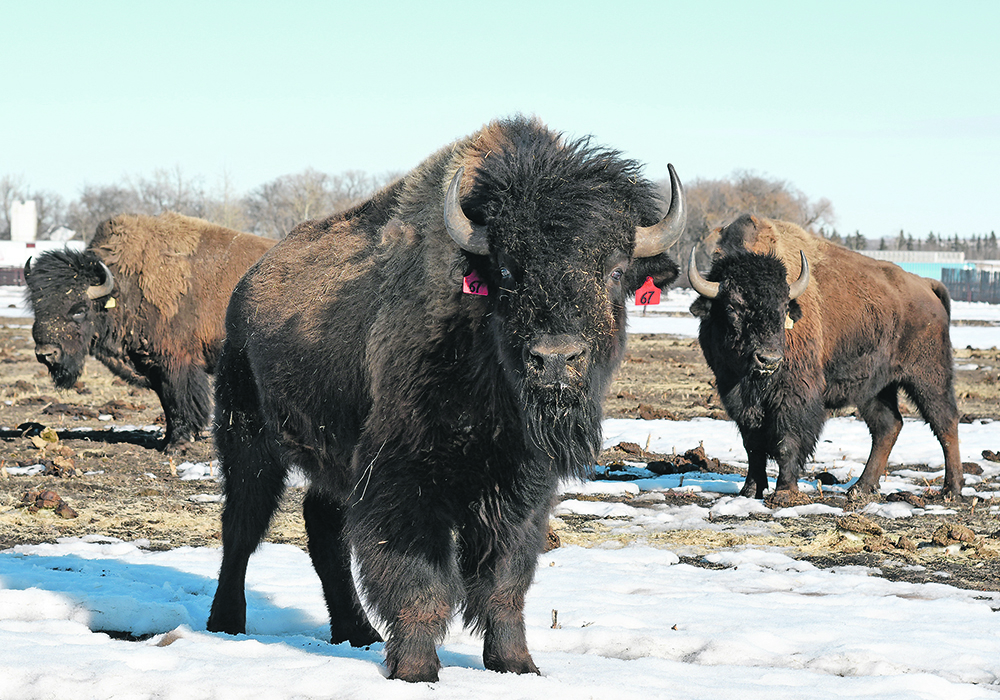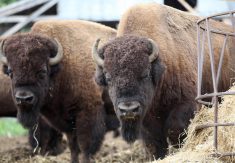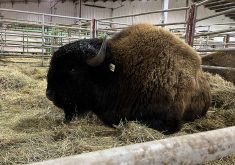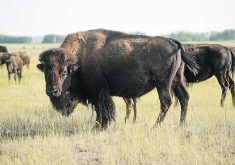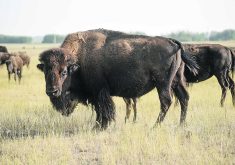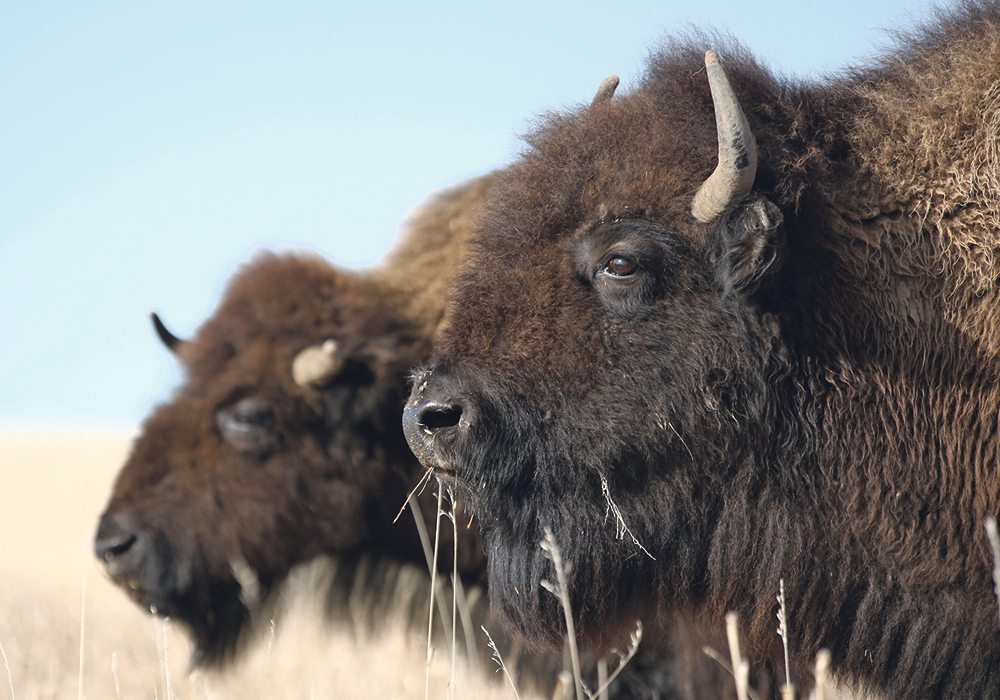A herd of bison will be moved to 1,280 acres of land purchased by Lakeland College, creating the first commercial bison ranch in Canada operated by a post-secondary institution.
It will allow students at the college’s Student Managed Farm in Vermilion, Alta., to get hands-on experience about how to manage bison, said dean of agriculture sciences Geoff Brown.
“Students will be making the business decisions and the culling decisions and everything they would have to do with running a bison operation and it’s really meant to just train them in that primary production side,” he said.
“There are spin offs, and even if they go to different areas of the ag sector, because now they have been in that seat of the farmer, they can understand how you make decisions on a farming enterprise. It allows us to coach them on that decision-making process in a really engaging way.”
The initiative was made possible through a donation of $4 million in 2020 by Armin and Rita Mueller of Canadian Rangeland Bison and Elk Inc. As a Swiss immigrant with a background in dairy farming, Armin had a childhood fascination for tales of the Wild West that partly led him to launch the operation near Lacombe, Alta., in 2000.
Eight contiguous quarter sections of land that include outbuildings, handling facilities and fencing were purchased by the college for $7.78 million. The land is about a 20-minute drive south of Vermilion and will be off the college’s campus, said Brown.
Lakeland College is the first post-secondary institution in Canada with a commercial bison operation, said a statement by the college. The initiative will help expand its animal science technology program, offering students the chance to work hands-on within a commercial-sized mixed operation, it said.
A total of 200 bison are currently being held at different locations involving a private farm near Mannville, Alta., west of Vermilion, as well as at an operation near Lacombe, said Brown. They will be moved to their new home by the end of January, which will likely include ceremonies by the college’s local Indigenous partners due to the importance of bison to their culture, he said.
Although bison can be managed by farmers, they are not domesticated animals, he said. “They’re very quick and there’s a very big what we would call a flight zone around bison compared to cattle, so they’re quite reactive,” he said.
“It just means that your stockmanship has to be very, very good, and also that your facilities have to be very good. You wouldn’t be able to handle them in a typical cattle operation, so there’s lots of educational components around that that we’ll be working with.”
Advisers will help guide students as they deal with bison, said Brown. “We’re really making sure that the facilities that we have to use are safe for our students and that we don’t ever put them in a high-risk situation.”
Bison also offer challenges in terms of marketing compared to cattle, he said. The COVID-19 pandemic affected much of the demand for bison meat due to the closure of restaurants, and the sector also faces challenges around packer capacity, he added.
“The prices have dropped off here in the last couple of years, but we’re looking forward to brighter times ahead, and really just hoping we can advise our students as they manage that herd to set us up for success when things turn around.”


